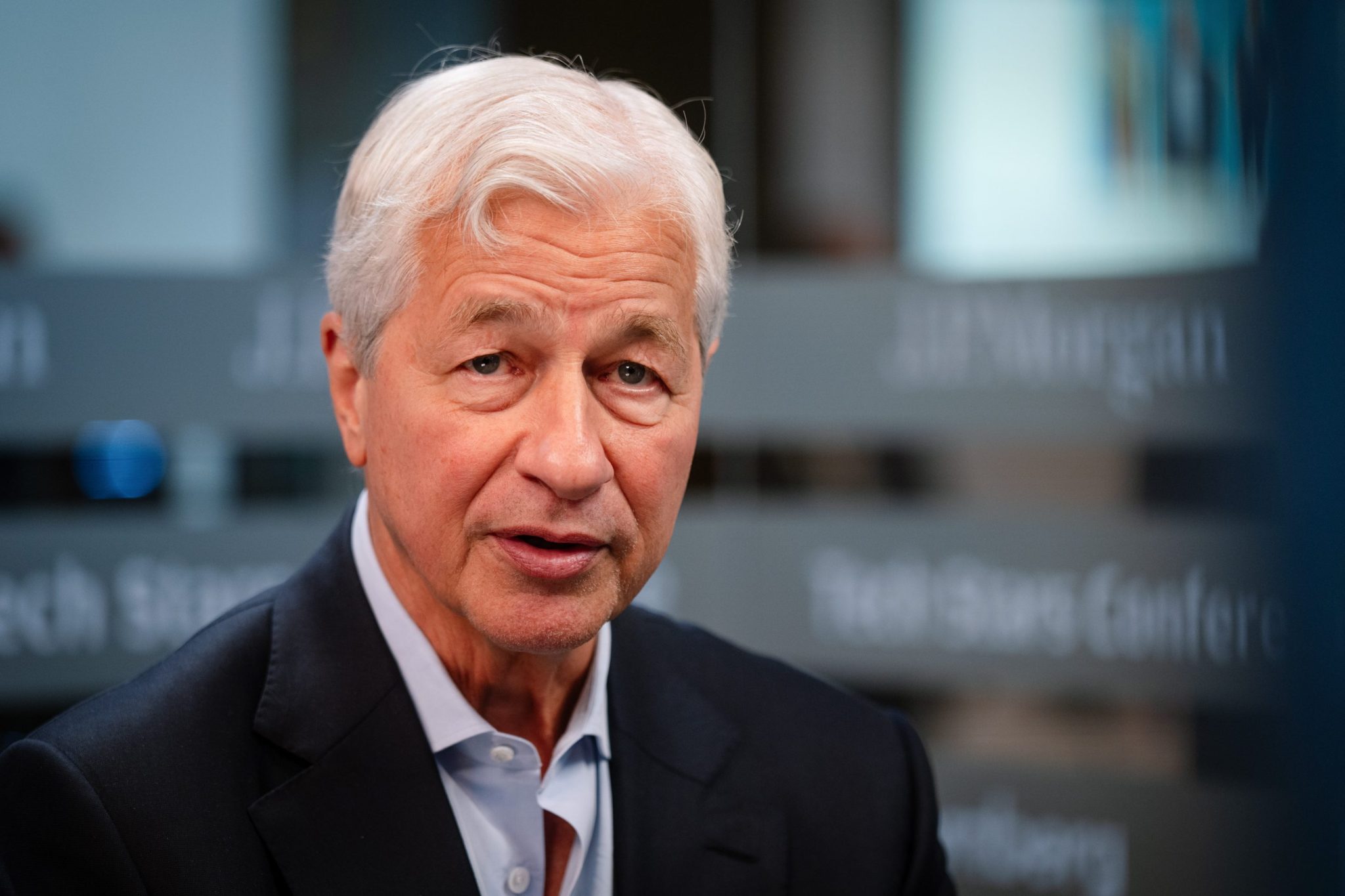Business
Jamie Dimon Highlights AI’s Impact and Stock Market Concerns

Jamie Dimon, CEO of JPMorgan Chase, addressed the implications of artificial intelligence (AI) and stock market trends during a recent appearance at the Fortune Most Powerful Women conference in Washington D.C. His remarks came on the heels of JPMorgan’s impressive quarterly earnings, which showcased the bank’s strong performance. Dimon emphasized the need for society to confront the potential job losses associated with AI technology, urging businesses and governments to find solutions to mitigate these impacts.
During the conference, Dimon stated, “It will eliminate jobs,” drawing parallels to historical technological advancements such as tractors and automobiles. He cautioned that rapid changes often outpace society’s ability to adapt. He highlighted the necessity for strategies like retraining and early retirement programs to assist those affected by technological disruption. Dimon warned against ignoring the challenges that could arise if workers who previously earned $150,000 faced the prospect of making only $30,000 in new roles.
In his discussion of AI, Dimon asserted that the technology is not merely a trend but a genuine and transformative force. He noted, “AI itself is real,” and encouraged businesses to embrace its potential. However, he also differentiated between AI and generative AI, stating that while some asset prices might be in “bubble territory,” the overall advancements in AI should not be dismissed as speculative.
Dimon compared the current enthusiasm around AI to the early days of the internet, when skepticism was prevalent. He acknowledged that while some projects may not deliver on initial promises, others will prove successful, advocating for a case-by-case approach to investment evaluation. Just days before this event, he expressed concerns about a potential 30% chance of a stock market correction in an interview with the BBC, indicating a more cautious outlook than some analysts.
Under Dimon’s leadership, JPMorgan has invested billions in AI and machine learning since 2012. The bank now employs over 2,000 staff in AI roles, utilizing hundreds of applications across various functions. He highlighted tangible benefits, estimating cost savings and new revenue streams of more than $2 billion. AI has been integrated into JPMorgan’s operations, enhancing areas such as fraud prevention, customer service, and legal document analysis.
Dimon made a critical distinction regarding the application of AI in banking, stating that JPMorgan focuses on specific use cases such as risk management and marketing. He emphasized that AI adoption often results in improved processes, sometimes leading to a significant reduction in headcount. Conversely, he categorized generative AI as less established, noting its tendency for inaccuracies and the challenges in assessing its efficiency.
Responding to a recent MIT study that found 95% of generative AI pilots had failed to yield a return on investment, Dimon urged caution in measuring efficiency too rigidly. He explained that substantial resources are spent on preparing data for AI applications, and he believes that once data management is optimized, efficiencies will naturally follow. He also acknowledged conversations with other CEOs who report successful AI implementations, despite some setbacks.
For Dimon, adaptability and continuous learning are essential in the evolving landscape of AI. He advised fellow executives to integrate AI into their operations and invest in ongoing training. JPMorgan has initiated AI “master classes” for managers to enhance their understanding and expertise in this critical area.
As global investments in AI continue to influence market dynamics, accounting for an estimated 40% of U.S. GDP growth in 2025, Dimon’s insights stand out for their blend of optimism and realism. He called for thoughtful regulatory frameworks, robust safety nets, and strategic planning to harness AI’s potential while addressing its challenges. His message serves as a reminder that the era of AI is upon us, and proactive engagement is vital for both corporate leaders and policymakers.

-

 Science2 months ago
Science2 months agoInventor Achieves Breakthrough with 2 Billion FPS Laser Video
-

 Health2 months ago
Health2 months agoCommunity Unites for 7th Annual Into the Light Walk for Mental Health
-

 Top Stories2 months ago
Top Stories2 months agoCharlie Sheen’s New Romance: ‘Glowing’ with Younger Partner
-

 Entertainment2 months ago
Entertainment2 months agoDua Lipa Aces GCSE Spanish, Sparks Super Bowl Buzz with Fans
-

 Health2 months ago
Health2 months agoCurium Group, PeptiDream, and PDRadiopharma Launch Key Cancer Trial
-

 Top Stories2 months ago
Top Stories2 months agoFormer Mozilla CMO Launches AI-Driven Cannabis Cocktail Brand Fast
-

 Entertainment2 months ago
Entertainment2 months agoMother Fights to Reunite with Children After Kidnapping in New Drama
-

 World2 months ago
World2 months agoIsrael Reopens Rafah Crossing After Hostage Remains Returned
-

 Business2 months ago
Business2 months agoTyler Technologies Set to Reveal Q3 Earnings on October 22
-

 World2 months ago
World2 months agoR&B Icon D’Angelo Dies at 51, Leaving Lasting Legacy
-

 Health2 months ago
Health2 months agoNorth Carolina’s Biotech Boom: Billions in New Investments
-

 Entertainment2 months ago
Entertainment2 months agoRed Sox’s Bregman to Become Free Agent; Tigers Commit to Skubal








